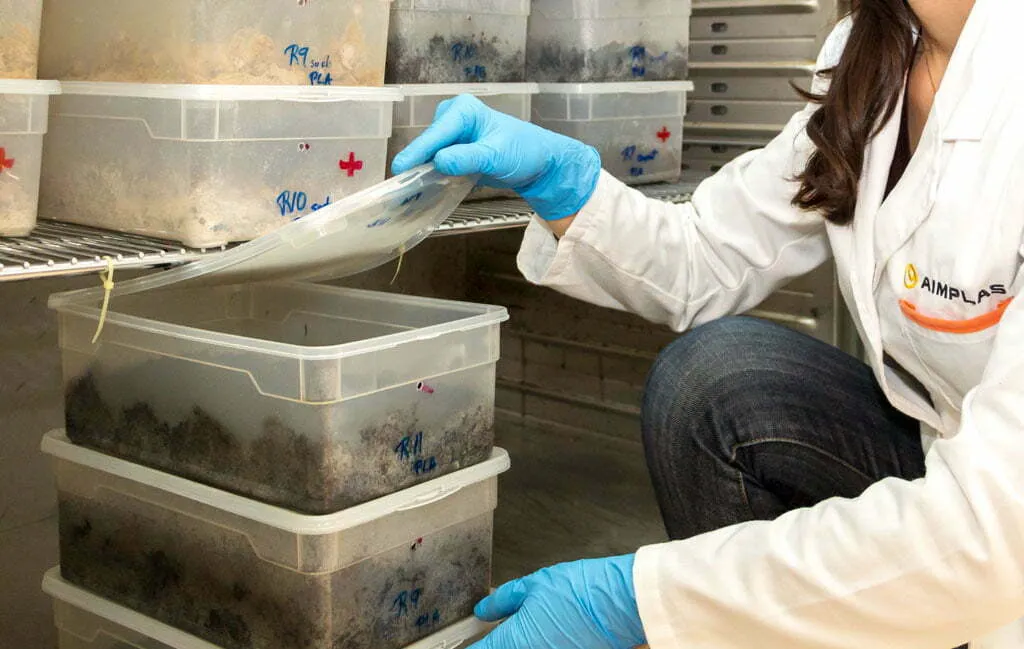The role of recognized laboratories and certifying bodies

The demand for bioplastics is increasing exponentially, and a wide range of biodegradable and/or compostable products is now available. According to the latest market data compiled by European Bioplastics in cooperation with the Nova-Institute, global bioplastics production capacity is expected to increase from around 2.11 million tonnes in 2020 to approximately 2.87 million tonnes in 2025.
An increase in the number of enquiries for laboratory tasks according to the current standards has been observed to check whether raw materials or finished products comply with the requirements of the standards and, therefore, there is a need for obtaining eco-labels that ensure such results. As a result of this, a usual confusion has been observed on who is the body responsible for conducting tests and certifying products.
What is the role of recognized laboratories?
There is no specific legislation on bio-based materials, their uses and their applications. Nevertheless, there are different standards both national and international that aim to standardize these materials, in terms of renewable origin and/or end of compostable life.
These standards are not mandatory but set out the aspects and tests needed to determine the characteristics that materials and/or products must comply with. For example, the most used standards for testing biodegradability or compostability are:
- UNE-EN 13432. Requirements for packaging recoverable through composting and biodegradation. Test scheme and evaluation criteria for the final acceptance of packaging.
- UNE-EN 14995. Plastics – Evaluation of compostability – Test scheme and specifications
- ASTM D6400. Standard Specification for Labelling of Plastics Designed to be Aerobically Composted in Municipal or Industrial Facilities.
- NF T51-800. Plastiques – Spécifications pour les plastiques aptes au compostage domestique.
- ISO 17088. Plastics — Organic recycling — Specifications for compostable plastics.
- UNE-EN ISO 14855. Determination of the ultimate aerobic biodegradability of plastic materials under controlled composting conditions – Method by analysis of evolved carbon dioxide – Part 1: General method.
- UNE-EN ISO 17556. Plastics – Determination of the ultimate aerobic biodegradability of plastic materials in soil by measuring the oxygen demand in a respirometer or the amount of carbon dioxide evolved.
Laboratories are responsible for conducting the tests needed and drawing up a final report with the results. Each certifying body has a list of recognized laboratories for companies that want to obtain a specific eco-label to conduct tests. AIMPLAS is recognized by the certifying body TÜV Austria for OK Compost INDUSTRIAL, OK Compost HOME, OK Biodegradable SOIL and SEEDLING labels through our tests. Learn more information on how to obtain these labels here.
What is the role of certifying bodies?
Certifying bodies aim to evaluate the complex information required by these standards and judge objectively and impartially the general characteristics of a material or product. This evaluation is conducted through certification systems. In general, it could be said that standards form the theory and certification systems turn this theory into practice.
Currently, different bodies promote product certification and provide those products complying with the requirements established by the standard with an emblem (a label or logo). Being certified involves being verified by an independent body:
- TÜV AUSTRIA: is a certification body that offers different eco-labels depending on the need and is widely recognized internationally by the end consumer, who appreciates the clarity and identifies any product that incorporates these seals as a certified product.
- DIN CERTCO is another certification body with which AIMPLAS has established an alliance to help companies speed up the procedures for obtaining these certificates.
Many attempts have been made to develop a unique, easy, international certification system valid in Europe, Asia and North America. However, the national interests have prevailed over the common interest and this has caused the development of different systems valid in different regions. Despite that, the bioplastics industry continues to make efforts to standardize the currently existing systems and achieve a partnership agreement between the different certification bodies. The main objective is to achieve mutual recognition of certificates.
The AIMPLAS Biodegradability and Compostability Laboratory is responsible for conducting the necessary studies so that companies can demonstrate the biodegradable and/or compostable nature of their products. Our reports are valid so that the certifying body TÜV Austria can give the eco-label of these products to the companies. You can find more information about these studies here.
Author: Sofía Collazo Bigliardi. Biodegradation & Compostability Laboratory
